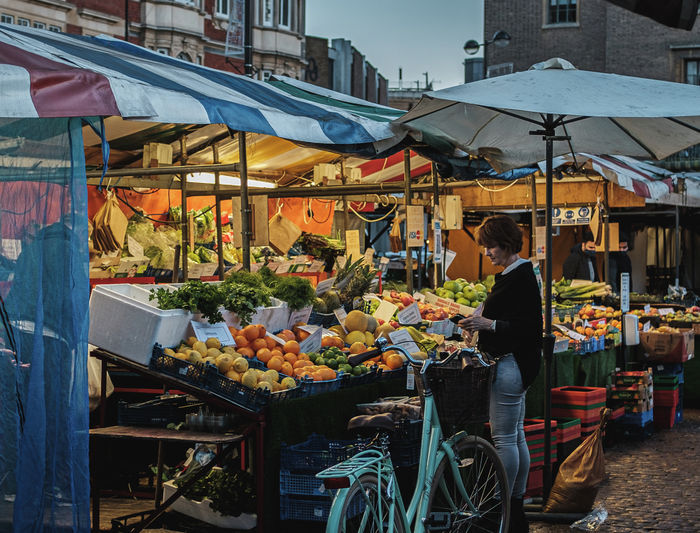Oxbridge land ownership is built on disempowerment
In the first instalment of his column ‘Landlord University’, Harvey Brown discusses the history of enclosure and alienation behind the University’s dominance over the town

“The tradesmen may justly be said to get their bread by the colleges”, Daniel Defoe observed of Cambridge in 1722, “and this is the surest hold the university may be said to have of the townsmen, and by which they secure the dependence of the town… and consequently their submission”. The locals Defoe met weren’t just depending on the colleges for trade, but also subsistence. While the university did historically possess the power to set the price for basic commodities like bread and ale, “bread” here is much broader. It is land, housing, and basic human rights like freedom of movement and thought. In Defoe’s day and our own, we can see how the university’s power over these essentials has enabled it to consolidate a stranglehold on city life. But this power-dynamic has been naturalised, and the process of the city’s “submission” to university interests forgotten.
“Stories upon stories of dispossession, alienation, and submission are created in order to generate that figure”
There’s an old story that you can walk from Trinity College, Cambridge to Trinity College, Oxford on land owned by both colleges. It’s not true, but the fact that it still circulates tells us something about our conception of Oxbridge as an almost timeless, ahistorical landlord. Such a generalisation conceals the twin processes of enclosure and alienation which enable the university’s hegemony in the city.
Enclosure refers to the privatisation of land previously in some form of collective ownership. The principle that land can simply be possessed in this way, taken by an individual for their own profit, is part of what enables land to be conceptualised as capital — an abstraction which can simply be bounced among investors and institutions for future profit. What is “bread” for the people who live on it, is simply an exchangeable source of income for those who own it. Land is our homes, our community — the source of all our nourishment — from our education to the food we eat. Changing the conditions for access to this land is what creates alienation.
Oxbridge Colleges own 126,000 acres of land in the UK — approximately 0.39% of the country. Stories upon stories of dispossession, alienation, and submission are created in order to generate that figure. The university’s consolidated assets are worth at least £11.8 billion. Yet this wealth was founded on the suffering of victims of colonisation and enclosure.
“Not a benevolent producer of knowledge, research, employment - but a hoarder of bread: a coloniser, police officer, landlord”
The language of the housing market hides these histories, and portrays the colleges and other landlords as the ones “dependent” on land to “get their bread”. Citing this principle, the lettings agent Bidwell’s proudly use their client Jesus College as a “case study" of how “the property endowment … is relied upon for the funding of [its] operations throughout the year”. Jesus College’s current property portfolio is valued at £101,356,200, according to the College’s 2021 annual report, an increase of over £8,000,000 from the previous year — despite the pandemic. The college, as much as Bidwell’s may try to imply, does not need all the land they own, and if they did, we should question the viability of a system “reliant” on endemic alienation and disempowerment.
Within living memory we can see the catastrophic impact the university’s land ownership has had on people living in the wider town. In 1959, the university campaigned extensively for the demolition of the Kite — a majority working-class area — to make way for a car park and more amenities for students. Jesus College, as one of the major landowners, used its significant power to lobby for the demolition, and in 1971, the council agreed to the university’s proposals. The Grafton Centre was built a decade later.
That something as mundane as a shopping centre is in fact an artefact of the university’s dominion in the city suggests that something is deeply wrong with the narrative the university has created for itself. It is not, as Defoe notes, a benevolent producer of knowledge, research, employment — it’s a hoarder of bread: a coloniser, police officer, landlord. In this column, we’ll see how a “university” came to become a force which dominated, rather than educated, and, which is worse, how Cambridge University’s entitlement to land-hoarding is now seen as a perfectly reasonable state of affairs. We’ll explore how the university came to own, privatise, and police our “bread”, and, more importantly, how we take it back.
 News / Uni Scout and Guide Club affirms trans inclusion 12 December 2025
News / Uni Scout and Guide Club affirms trans inclusion 12 December 2025 News / Pembroke to convert listed office building into accom9 December 2025
News / Pembroke to convert listed office building into accom9 December 2025 News / Cambridge Vet School gets lifeline year to stay accredited28 November 2025
News / Cambridge Vet School gets lifeline year to stay accredited28 November 2025 Features / Searching for community in queer Cambridge10 December 2025
Features / Searching for community in queer Cambridge10 December 2025 News / Uni redundancy consultation ‘falls short of legal duties’, unions say6 December 2025
News / Uni redundancy consultation ‘falls short of legal duties’, unions say6 December 2025










